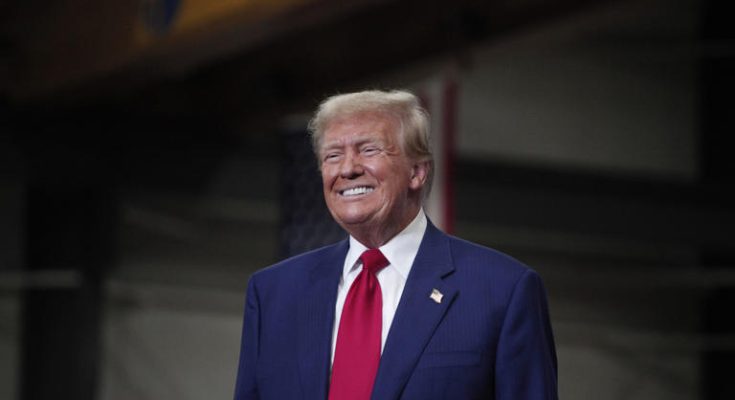Judge Tanya Chutkan has granted Donald Trump‘s request to not attend his new arraignment on election fraud charges.
Trump is to be rearraigned on Thursday because prosecutor Jack Smith has issued a new indictment based on the Supreme Court‘s July 1 ruling on presidential immunity.
The former president’s lawyer will plead not guilty for him during a status hearing on Thursday.
Trump was indicted last year on four counts of allegedly working to illegally interfere in the results of the 2020 election in the run-up to the riot on January 6, 2021, at the U.S. Capitol. The Republican presidential nominee has pleaded not guilty and has said that the case is part of a political witch hunt.
The latest indictment is nine pages shorter than the original one and focuses much more on Trump’s actions as a private person, rather than his acts as president.
Newsweek emailed the Trump campaign for comment on Wednesday.
On Tuesday, Trump filed a request to not attend arraignment. “I, President Donald J. Trump, the above-named defendant … do hereby waive my right to be present at arraignment and I authorize my attorneys to enter a plea of not guilty on my behalf to each and every count of the superseding indictment,” he wrote.
“I further state that I have received a copy of the superseding indictment and reviewed it with my counsel.”
Judge Chutkan wrote a brief order on Tuesday stating that Trump’s “motion for waiver of defendant’s presence at arraignment is hereby granted.”
She also announced that the arraignment will take place on Thursday. “The court will confirm the waiver and conduct the arraignment at the status conference scheduled for September 5, 2024,” she wrote.
Trump’s lawyers are currently seeking a delay in his election interference case in light of the July 1 Supreme Court ruling, which gave presidents broad immunity from prosecution.
In a submission to trial judge Chutkan on Friday, August 30, Trump’s lawyers suggested that the disclosure requests in the case needed to be reconsidered before the court even begins to weigh up the extent of presidential immunity in the case.
They suggested pretrial motions should continue until January 2025 with “defense replies in support of motions to dismiss and compel” on January 24, 2025, and a “non-evidentiary hearing regarding motions to dismiss and compel” beginning on the week of January 27, 2025, and likely continuing into February.
They also suggested “additional proceedings, if necessary” in the spring and fall of 2025.
The Supreme Court ruled 6-3 on July 1 that presidents have broad immunity for official acts. The court said that presidents have absolute immunity for core political acts and have some immunity for other acts committed as president, but no immunity for strictly private conduct. It also ruled that official acts cannot be used as evidence if taking a case against a president for unofficial acts—a part of the ruling that is highly relevant to the Trump case.



